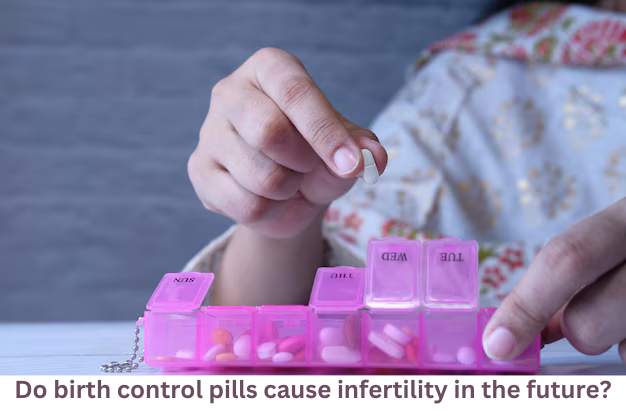Do birth control pills cause infertility in the future?
One of the most common concerns among women considering birth control pills is the potential impact on their future fertility. Many wonder if long-term use of these pills could lead to infertility. Let's delve into this common misconception and explore the truth about birth control pills and fertility.
Understanding Birth Control Pills
Birth control pills are hormonal contraceptives that prevent pregnancy by preventing the release of an egg (ovulation), thickening cervical mucus to block sperm, and altering the uterine lining to prevent a fertilized egg from implanting. They contain a combination of estrogen and progestin hormones, which work together to achieve these effects.
The Myth: Birth Control Pills Cause Infertility
The notion that birth control pills can cause infertility is a persistent myth. Numerous studies have consistently shown that there is no link between long-term use of birth control pills and infertility. In fact, many women who have used birth control pills for years have successfully conceived without any issues.
How Birth Control Pills Work Temporarily
While birth control pills do not cause infertility, they do temporarily prevent pregnancy. When you stop taking the pills, your body's natural fertility returns. The time it takes for your menstrual cycle to regulate and for ovulation to resume can vary from woman to woman, but it typically happens within a few months.
Benefits of Birth Control Pills
In addition to preventing pregnancy, birth control pills offer several other benefits, including:
Regulating menstrual cycles: They can help reduce heavy bleeding, painful periods, and irregular cycles.
Treating acne: Birth control pills can be effective in managing acne.
Reducing the risk of certain health conditions: They can lower the risk of ovarian cancer, endometrial cancer, and pelvic inflammatory disease.
Improving PMS symptoms: Birth control pills can alleviate symptoms like mood swings, bloating, and breast tenderness.
Factors Affecting Fertility
While birth control pills do not cause infertility, there are other factors that can influence a woman's fertility, such as:
Age: Fertility naturally declines with age, especially after 35.
Medical conditions: Certain health conditions, such as endometriosis, polycystic ovary syndrome (PCOS), and sexually transmitted infections (STIs), can affect fertility.
Lifestyle factors: Factors like smoking, excessive alcohol consumption, and unhealthy diet can impact fertility.
Seeking Fertility Help
If you are experiencing difficulty conceiving after stopping birth control pills, it's important to consult with a fertility specialist. They can evaluate your fertility, identify any underlying issues, and recommend appropriate treatment options.
New World Fertility Centre in Delhi is a leading fertility clinic that offers comprehensive fertility services, including:
- Infertility evaluation: Diagnostic tests to assess fertility factors in both partners.
- Treatment options: A range of treatments, such as intrauterine insemination (IUI), in vitro fertilization (IVF), and intracytoplasmic sperm injection (ICSI), to help you achieve pregnancy.
- Counseling: Support and guidance to address the emotional aspects of infertility.
Contact Us: New World Fertility Centre, Delhi
Phone: +91-844-8786-106
Email: info@newworldfertility.com
Website: https://newworldfertility.com
Frequently Asked Questions (FAQs)
1. Can birth control pills cause permanent infertility?
No, birth control pills do not cause permanent infertility. They temporarily prevent pregnancy by stopping ovulation and thickening cervical mucus. Once you stop taking the pill, your fertility should return to normal within a few weeks to months.
2. How long does it take to get pregnant after stopping birth control pills?
Most women resume ovulation and normal fertility within 1-3 months after discontinuing birth control pills. However, some may experience a brief delay in their menstrual cycle's return, but this is temporary.
3. Why is there a delay in getting pregnant after stopping birth control pills?
The delay in getting pregnant is usually due to your body adjusting to the natural hormone regulation after stopping the pill. This is not permanent and should not be considered infertility.
4. Can long-term use of birth control pills affect future fertility?
No, long-term use of birth control pills does not negatively affect future fertility. There is no evidence to suggest that taking the pill for several years impacts a woman's ability to conceive once she stops using it.
5. Does stopping the pill increase the risk of fertility issues?
Stopping the pill does not cause fertility issues. However, some women may have underlying conditions, such as polycystic ovary syndrome (PCOS) or endometriosis, which could affect fertility but may have been masked by the pill. These issues could become more apparent after discontinuing the pill.

 Oct-07-2024
Oct-07-2024